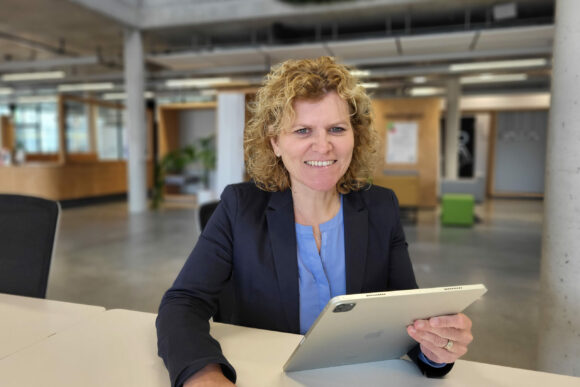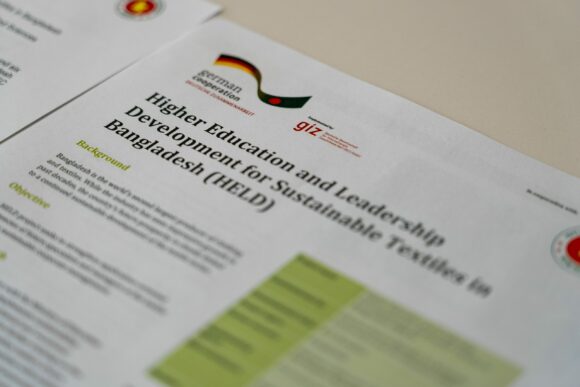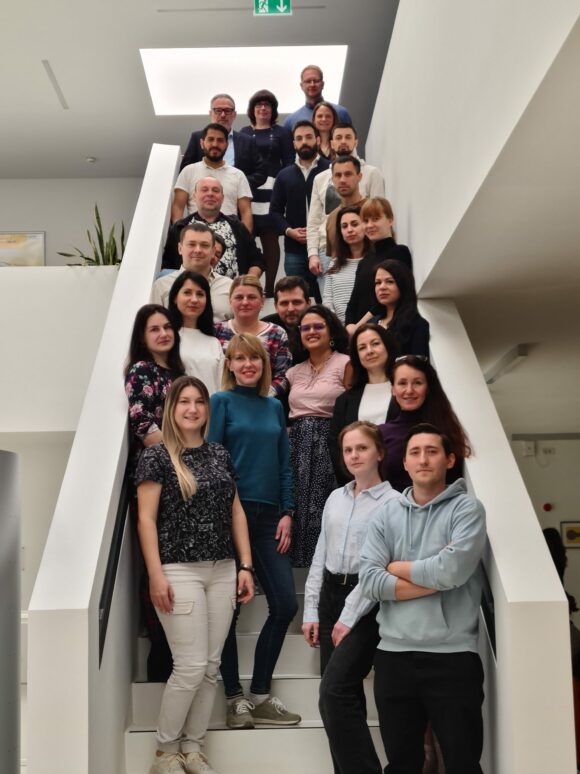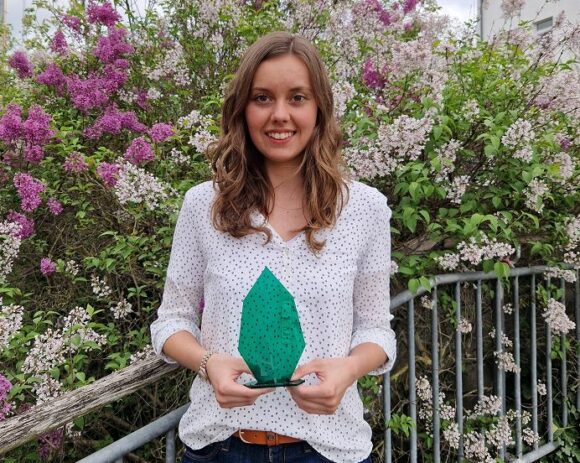The TAO Health Congress, organized by Hof University of Applied Sciences, was the final event in the Health theme year of the Upper Franconia Technology Alliance (TAO). Divided into different topic clusters (digital health applications, psychology and well-being as well as nutrition and health), there were numerous technical and thematic presentations by researchers and experts under the scientific direction of Prof. Dr.-Ing. Dietmar Wolff. Last but not least, the congress of the 4 Upper Franconian universities and colleges focused on promoting the networking of all players in the health care system.

Image: Hof University of Applied Sciences;
Thematically, the day’s two keynotes in particular took center stage: after the opening by university president Prof. Dr. Dr. h.c.. Jürgen Lehmann, Bart De Witte, a leading international expert on digital transformation in the healthcare sector, took visitors on a journey into the world of artificial intelligence in his online lecture “From exclusivity to inclusivity: AI and OpenSource as catalysts of change”.
Man-machine partnership
He spoke of how, in the future, man and machine could form a new partnership. For example, AI could assist with specific applications in medicine – such as the detection of critical findings – and also make a valuable contribution in the care sector. A particular focus of the presentation was De Witte’s plea for innovation with the help of artificial intelligence based on open source.
Hospital of the future
In his presentation on “Hospital future: science, not fiction,” the second keynote speaker, David-Ruben Thies, described his vision for a new kind of healthcare. He fascinated the audience with his organization of the Waldkliniken Eisenberg, which he manages – a star-level patient hotel that operates, among other things, with its own electronic patient file. With 23,481 hip endoprostheses and 17,967 knee endoprostheses from 2000 to 2021, the clinic is the largest university orthopedic center in Europe, as well as the primary care provider for the Saale-Holzland district. Under the motto “Think new, go new ways – together”, the speaker gave the participants important impulses and food for thought about the hospital of the future. He also provided insights into the “VierSternePlus” (Four Stars Plus) guest concept practiced by his specialist clinics.
Healthy food from aquaculture
Dr. Harvey Harbach and Prof. Dr.-Ing. Dietmar Wolff from the host university Hof took part in the varied lecture program: Dr. Harbach, research group leader resource-efficient food production in integrated aquaculture at the Institute for Sustainable Water Systems (inwa), first defined the 10 rules for healthy eating and drinking of the German Society for Nutrition e.V. and referred to the importance of fishing and food from aquatic production (e.g. fish, crabs, mussels). The latter has recently increased so much that it has now overtaken conventional fishing.

Aquaculture itself can involve very different types of production. Depending on how the water is used, it can be divided into open-loop, partially closed-loop or closed-loop systems. Integrated aquaculture systems are those that also use the residual materials from fish excrement and feed residues for food production. The efficiency of the systems can be achieved and increased in particular by digital solutions.
Future trends in care
Prof. Dr.-Ing. Dietmar Wolff, Vice President of Teaching at Hof University of Applied Sciences and head of the Innovative Healthcare research group, began his presentation by referring to the immense increase in the number of people in need of care that is expected in the coming decades and to forecasts according to which care bottlenecks are likely to arise, particularly in rural areas. Although Germany has a comparatively high number of care workers, many of those who once entered the profession are not available to the labor market for a variety of reasons, including the prevailing working conditions. Part of the solution could therefore lie in recruiting foreign workers. Nevertheless, he said, efforts must be made to motivate even more young people to take jobs in the healthcare industry. “Ultimately, the shortage of skilled workers can only be overcome with a mix of recruiting skilled workers, digitization and more efficient processes,” said Prof. Dr.-Ing. Wolff. Particularly with digital solutions already available today, however, patients complain about insufficient information and education, so that digital health literacy often leaves much to be desired on both sides.

He then went on to discuss a wide variety of solutions based on the Internet of Things (IoT), artificial intelligence (AI), blockchain and Big Data. Robots, voice input or technical assistance systems, as well as aids based on virtual reality, are already increasingly in use today, he said. But even end-to-end electronic processing of processes with suitable software is suitable for streamlining workflows and saving time, he said, as is the use of AI for duty and shift planning.
Exciting presentations
During the breaks between presentations, yoga and Pilates coach Aenna Sölch encouraged congress participants to take an active break. In addition, the Bavarian Red Cross (BRK) provided a refresher course in first aid and resuscitation and demonstrated how a defibrillator can save lives in cardiac emergencies.

The foyer also hosted other exhibitors – including Coburg University of Applied Sciences, Bayreuth University, the Bavarian Red Cross, Oberfranken Offensiv, the Volkshochschule Hofer Land and the research groups of Prof. Dr. Jörg Scheidt (Institute for Information Systems at Hof University of Applied Sciences, iisys) and Dr. Harvey Harbach (Institute for Sustainable Water Systems at Hof University of Applied Sciences, inwa). The association Kulturdrang e.V. as well as the catering of Metzgerei Max made sure that the visitors also got their culinary money’s worth.















































